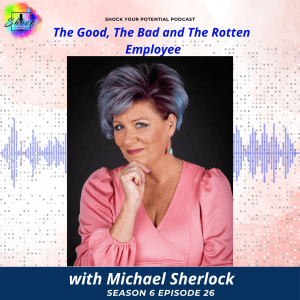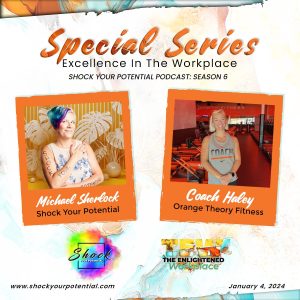“When you learn what you have to do, and you understand how it works, the path of least resistance is laid before you to help move on.” Rob Lougee
Access to information is a primary factor to ensuring that veterans going through tough situations receive available assistance. Our guest today has been working with the disabled veterans for a long time to help them set up successful businesses and careers.
Rob E. Lougee, a service-connected disabled veteran of the Persian Gulf War, was appointed Assistant National Employment Director of the 1.3 million-member Disabled American Veterans (DAV) in March 21, 2016. From the DAV National Headquarters located in Cold Spring, Kentucky, Mr. Lougee manages special employment initiatives and works with private and public sector entities to develop and build partnerships to address joblessness and underemployment, as well as facilitate job fairs and lead efforts to connect veterans and transitioning service members to employers.
A Boston native, Mr. Lougee enlisted in the U.S. Army in 1983 and served until 1992 in the First Armored and First Calvary Divisions, attaining the rank of specialist. His awards included the Meritorious Service Medal, Army Commendation Medal, Army Achievement Medal, Southwest Asia Medal with three bronze stars and the Kuwait Liberation Medal.
Mr. Lougee joined DAV’s professional staff as a National Service Officer Trainee in 1993. Three years later, he was promoted to National Service Officer Supervisor and served as a National Area Supervisor from 2002 to 2008 until an appointment to serve as Adjutant and Executive Director for the DAV Department of Colorado. Mr. Lougee returned to serving as a National Service Officer Supervisor and National Area Supervisor following more than a year in the Department of Colorado’s top post. He is a life member of DAV Chapter 19 in Cold Spring, Kentucky. Mr. Lougee studied business at Central Texas College. He lives in Hebron, Kentucky. He has a daughter named Amanda living in Colorado.
In today’s episode, Rob will talk about his work caring for disabled veterans and the various resources that they can leverage for their good.
Listen in!
Social Media;
LinkedIn link: https://www.linkedin.com/in/rob-lougee-9710526
- Most of the males in my family all served in the military and I joined the military back in 83. [12:54]
- I was blessed to be able to serve in outstanding military units and came back thankfully with all my appendages. [3:18]
- The military taught me so much about my ability to endure the unknown and to think strategically, to understand what commitment is, and to think on my feet. [3:38]
- I’ve been with the DAV now professionally for 26 years and I enjoy taking care of my fellow veterans and their families. [4:28]
- We give disabled vets a chance and we try to take care of them through the many programs and services that we have. [5:05]
- It is my pleasure to try to engage veterans and meaningful employment opportunities and provide them the tools and the information to get it. [5:27]
- I always encourage all people who have served in the military to register with the VA, regardless of whether they need the assistance or not. [7:46]
- Every veteran that wore the uniform, put their lives out there for their country, whether they actually went to war or not and so deserve all the benefits that they are entitled to. [8:49]
- The DAV wants to engage with any entity that is interested in hiring veterans and here many companies that have hired veterans. [10:27]
- I ask veterans to keep an open mind, not just think about what they did in the military but understand their capabilities and take a chance every now and then. [11:59]
- You may not always get what you want or what you think you need, but you have to start somewhere. [12:17]
- Predominantly, a lot of us join the military start right after our 18th birthday and often don’t know what we want to do with our lives. [13:55]
- During your military journey, you realize your capabilities and the different things about yourself, and you learn to grow like everybody else does. [14:14]
- The military culture is a little more stringent where people are trained very specifically to do their [14:28]
- You should volunteer for every school the military is willing to send you to because at the end of the day, that’s going to help you when you get out of the military. [14:46]
- Commercial Break. [15:22]
- The proportion of service disabled veteran owned small businesses. versus civilian businesses how that we have a greater percentage of just under 9% are veteran owned. [19:56]
- We are hoping that more veterans are engaged through entities such as SBA in different levels help them set up their business. [21:00]
- 45% of veterans that are leaving the military are more likely to think about beginning their own small business and one out of 10 small businesses in the US is veteran owned. [22:09]
- The skill set of problem solving is probably the greatest attribute that a veteran entrepreneur possesses. [22:47]
- We are working diligently through several government entities to try to level the playing field and get the privileges that minority groups are entitled to. [24:08]
- One of the issues that you have in small business world is that you have small businesses that fail, because they don’t understand the business concept of small business. [26:38]
- We have a lot of resources out there to help veterans, whether disabled or not and even women veterans. [27:14]
- I want to ensure that every veteran that has an idea and wants to explore it have the information they need to go down that path to see if it is for them or not. [27:42]
- Regardless of whether you are a non-profit or for profit, to be in business for 100 years is an achievement. [29:53]
- We are very excited to be able to finally celebrate our centennial celebration where September 26, and 27th will be the major dates. [30:36]
- You always want to make sure that you’re trying to do it better than the generation before you and da v has a track record of doing it better. [31:27]
- We understand that you have to evolve and so we’re very proud of the fact that we’ve been able to stand the test of time. [31:38]
- We welcome all veterans out there that may want to become a part of our group, we can help find them find something to do within their capability level. [32:19]
- We live in a technological age and we have to maximize the potential of that not only for our donors sake, but for reaching out to that veteran or a service member. [33:19]
- When you learn what you have to do, and you understand how it works, the path of least resistance is laid before you to help move on. [33:38]
- They’ll always be issues with transitioning out of the military and so we try to put that in some type of context. [34:11]
- Any veteran that is thinking about getting in or starting a business, there is a bunch of different resources available to help you push forward. [36:25]
- The VA has the office of small and disadvantaged business utilization; SBA has the Veterans Bennet business development. [36:38]
- The OVBV has an office that guides members through all the steps and starting a business; and the Institute of Veterans and Military Families which teach veterans and their families how to start and run a business. [37:00]
- There is also entrepreneurship bootcamp for veterans and patriot bootcamp who assist military members to creators, innovators and entrepreneurs. [37:52]
- We also have the Women Veteran Entrepreneurship for women veterans and the GSA who have a federal surplus for personal property donation program. [38:47]
- Think outside the box because you are capable of doing much more than what the military ever taught you. [41:35]
…………………………………….
Thank you to our April Sponsor: Entrepreneur’s Guide to Financial Well-Being or Wayne Titus
Imagine starting a long journey without a map…or even a clear idea of the obstacles ahead. That’s exactly what it’s like for entrepreneurs who start companies with a lot of passion, but without the financial expertise to grow and scale their businesses and create long-term wealth for their families.
Wayne Titus shows you how to find a financial adviser who can help you map a better journey. In his book, The Entrepreneur’s Guide to Financial Well-Being. With the right adviser at your side, you’ll have the freedom to focus on what really matters to you.
Get The Entrepreneur’s Guide to Financial Well-Being at Amazon.com and in the virtual bookstore on the Shock Your Potential app.








